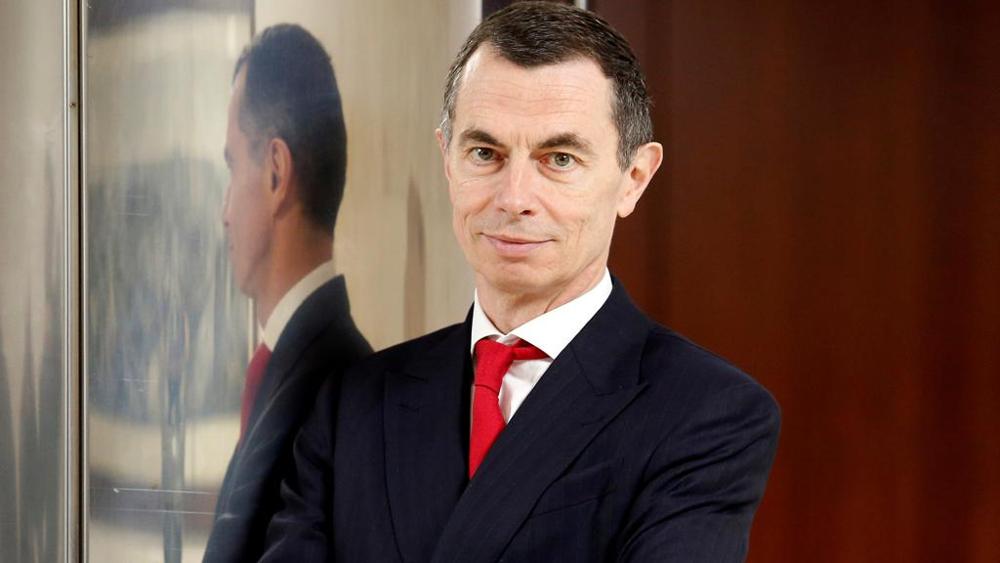Here’s what really happened between the Unicredit board of directors and Mustier (released or scrapped?)

Facts, numbers, reconstructions and comments on the early exit of Mustier from Unicredit.
Torpedoed as obnoxious? This is the question that some readers will have asked themselves today when reading an article in the Sole 24 Ore on Jean-Pierre Mustier's decision to leave Unicredit before the deadline.
It is known that bankers are not funny guys, but until yesterday at least in the big newspapers there was no information on how rough, unfriendly and haughty the number one of the Unicredit group was.
The only one who so far openly – and long before the exit from Unicredit announced yesterday – reprimanded Mustier in tough tones was Lando Maria Sileoni, secretary of Fabi, the largest banking union.
But is the reason for Mustier's farewell only temperamental? The French banker made it clear that the Unicredit board no longer shared his “Piano Team 23”.
Tomorrow Start Magazine with chronicler Susanna Scotto d'Apollonia will try to understand more by reading reports and hearing analysts.
But at the moment the journalists who are experts in banking and finance are almost in agreement: the Unicredit board of directors was already pushing – even before taking office as president of the former Minister of Economy, Piercarlo Padoan (Pd), who oversaw the nationalization of Mps – for the purchase of Monte dei Paschi di Siena.
Why buy the bank of Siena? They kill two birds with one stone: join and grow (as the ECB advises) and solve a problem for the government.
In fact, the Ministry of Economy has pledged with the European Commission to go down in the capital of MPS next year (since now the Treasury controls Mps with 68% ) but few dream of buying Monte.
The government has already studied a sugar: a fair tax benefit valid in the case of credit aggregations.
Mustier, however, apparently did not like sugar, or perhaps he considered it not very sugary. Who knows.
Thus, with the tireless work in particular of the Debenettian-Abetian Stefano Micossi, economist, general manager of Assonime (the association that brings together large private and public companies) and president of the Unicredit nominations committee, the work alongside Mustier has gone to sign.
Basically, Mustier stepped aside so as not to be practically discouraged by the board of directors of Unicredit.
On the other hand, for weeks some observers of political, economic and financial things have been wondering: but how will Mustier manage to remain head of a bank that is unanimously spanked by all the parliamentary groups within Copasir, the Committee for the security of Republic?
The question was not at all mischievous, given the whipping on plans and even journalistic hypotheses attributed to Mustier that are found in the recent Copasir final report on banking and financial assets .
In the same report there were also contradictions, also on the Mps-Unicredit dossier and even with the Treasury , but criticisms and remarks at the top of Unicredit stood out (especially on the project to spin off foreign activities from the Italian holding; project opposed by the Treasury) abundantly explained and illustrated to the press by members of the Committee, in particular by the dem Enrico Borghi.
Today Repubblica remembers that “Mustier has often shown himself ready to explore“ European ”growth hypotheses (the wedding dossiers with the French SocGen and Commerzbank are in the archives), never domestic ones”.
Not to mention puffs and discontent over cuts and sales (such as the Pioneer funds that went to the French from Amundi, not to mention Fineco and Bank Pekao, until – and certainly not least – the exit from Mediobanca) branded Mustier.
But really only the Italian palaces have joyfully accompanied the number one of Unicredit to the door? Today's tumble on the stock market of the Unicredit stock would induce to answer yes, given that Piazza Affari did not like the early exit of the head of the company ( stock down 8% ).
Yet perhaps even in foreign funds, doubts were creeping into the validity of Mustier's tactics.
Sara Bennewitz of Repubblica : “The big funds, which also followed the manager in the largest bank recapitalization ever seen in Piazza Affari, began to lose confidence when Mustier started talking about buy back. To argue that it is appropriate to invest 4 billion in a share buyback (because by canceling 25% of the shares, earnings per share rise by 30%) is a short-term and shortsighted vision ”.
So all is well that ends well?
Find the square and Unicredit digest Mps, so much the cook Padoan is already in the kitchen between codicilli, tax discounts on cooking and legal buboes to be treated with who knows what regulatory alchemy.
Will it really be like this? Who knows.
Certainly, with a systemic Unicredit-Mps swap, the Mef would become the largest shareholder of Unicredit with 17%, according to a report .
A beautiful paradox, like the one that can also be glimpsed in a study by Mediobanca Securities (the Milanese investment bank is an advisor to Mps but the Chinese walls are what they are, you know): MB's analyzes do not know whether they hope or foresee that Unicredit will fall prey to an acquisition by the French Bnp Paribas: an institution with a budget of 2,800 billion, present in Germany, France, Italy, Poland, Turkey, Hungary, Russia would be born ”.
“So – Federico Fubini noted in Corriere della Sera – to save Siena, Italy would have paved the way for the conquest of its most European bank from abroad”.
This is a machine translation from Italian language of a post published on Start Magazine at the URL https://www.startmag.it/economia/mustier-unicredit-cda-uscito-rottamato/ on Tue, 01 Dec 2020 15:06:57 +0000.
